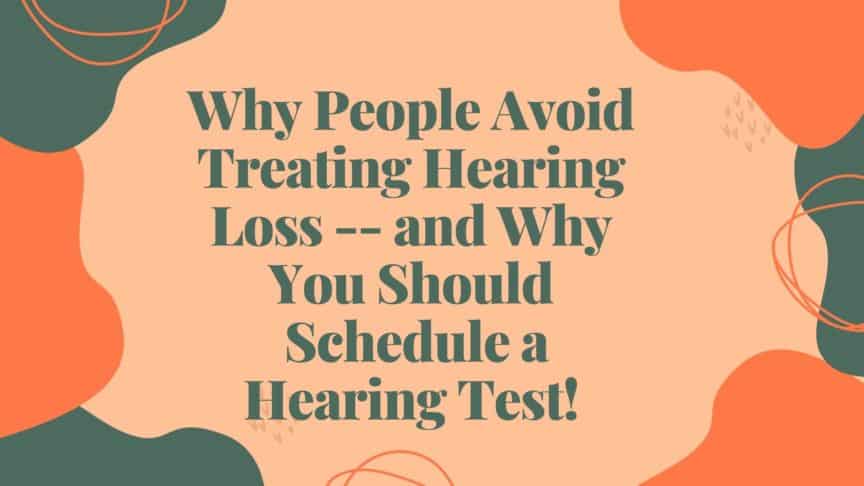- How to Care for Infants With Hearing Loss - April 15, 2024
- Hearing Aid Tips for Runners - April 5, 2024
- Overcoming Misconceptions Around Hearing Aids - March 27, 2024
Perhaps you have started to notice that your hearing isn’t what it used to be. You might have had a conversation with someone who is a soft speaker or a child who was more difficult to hear than you would expect. The difficulty might come from a certain context, such as a place with background noise. You might even find yourself at a dinner with family or friends where you can barely hear the person next to you, let alone those several seats away.
When you begin to notice these things, what is your response? Some people are so eager to resume the comfort of communication that they will call the next day for a hearing test. Others, on the other hand, are more likely to avoid getting the test. The reasons for that avoidance come in all shapes and sizes, just like our experiences of hearing. Let’s consider a few of the reasons people put off getting a hearing test so that we can put you or your loved one on the right track toward treatment.
Denial
Perhaps the most difficult challenge to overcome with a loved one who has hearing loss is denial that the problem exists. Indeed, those who refuse to acknowledge to you that they have a hearing problem are the least likely to seek assistance. To make matters even more complicated, they might be denying that hearing loss to themselves, as well. Avoidance, denial, or otherwise refusing to admit reality can lead to much more serious health issues down the road, not only limited to hearing-related problems. Indeed, physical, mental, and cognitive health have all been correlated to untreated hearing loss, so it’s time to admit the truth of your struggle to hear.
Negative Associations
Some people avoid getting a hearing test due to the associations that hearing loss or hearing aids might bring to mind. For instance, some people falsely think that hearing loss is only associated with “getting old,” though the evidence is to the contrary. Hearing loss is actually on the rise among younger people, and many attribute this change in the demographics of hearing loss to the use of earbuds and headphones to stream music and media. As these younger generations develop hearing loss, the association between hearing aids and old age might break down.
Fear
For some, the honest reason for avoidance of a hearing test is fear of what it might demonstrate. Those who value their hearing ability will fear the truth that it might be compromised. Learning that you have hearing loss is most often the realization that it is not coming back. The most common forms of hearing loss are permanent, and that can be difficult news to take. Although a diagnosis might be disappointing, it does not help to delay that assessment. You will need to understand the nature of hearing loss in order to find the treatment you need.
Misconceptions
Perhaps you are using a misconception about hearing loss to keep you from getting the test. Some people think that hearing aids are too expensive to afford, only to find that affordable options are available. Others think that they can get by just fine with hearing loss, but hearing loss does more harm than to your conversation ability alone. Beyond the context of a conversation, untreated hearing loss can lead to other serious health concerns, so your feeling that you are getting by just fine without assistance is likely an illusion.
Other misconceptions have to do with the functionality of hearing aids themselves. With an image of hearing aids trapped in the past, you might think that they can do much less than they actually can. The latest aids are remarkably equipped to address your hearing needs and many of them can connect with your other devices, as well.
If any of these excuses for avoiding a hearing test sound familiar to you, then take a moment to ponder your thought process regarding hearing loss. At the end of each chain of thought is the inevitability that you need to seek a hearing test to get the full picture of your ability and the treatment options that are available.

